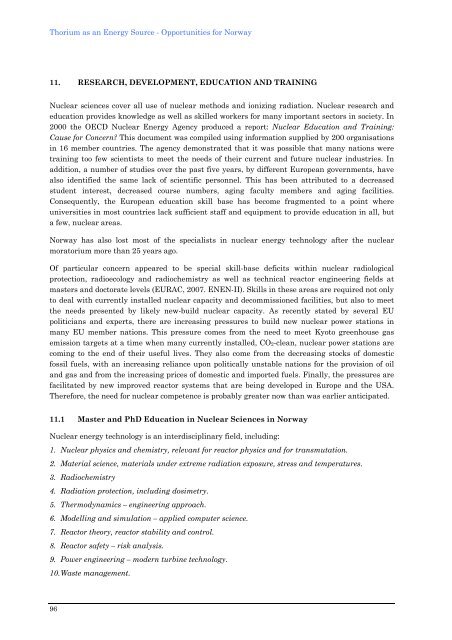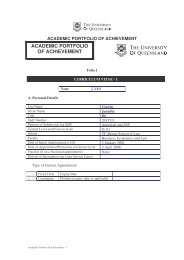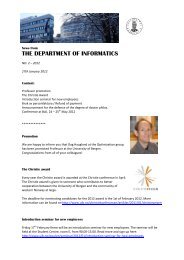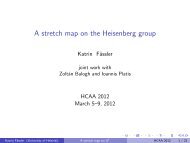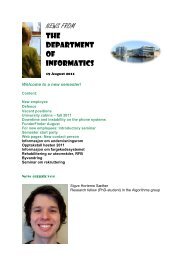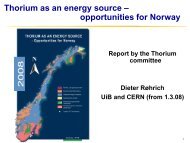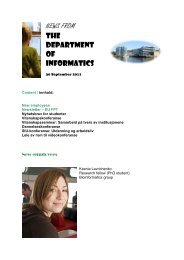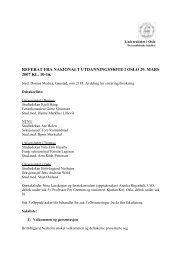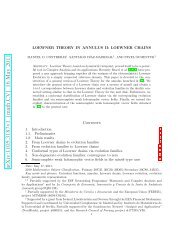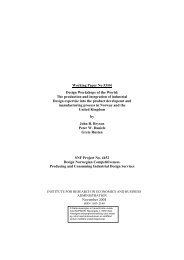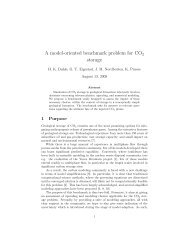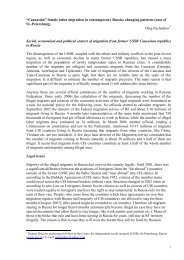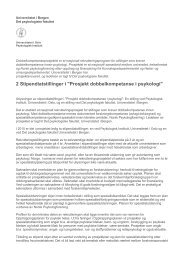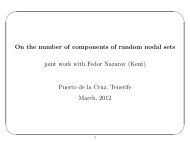THORIUM AS AN ENERGY SOURCE - Opportunities for Norway ...
THORIUM AS AN ENERGY SOURCE - Opportunities for Norway ...
THORIUM AS AN ENERGY SOURCE - Opportunities for Norway ...
You also want an ePaper? Increase the reach of your titles
YUMPU automatically turns print PDFs into web optimized ePapers that Google loves.
Thorium as an Energy Source - <strong>Opportunities</strong> <strong>for</strong> <strong>Norway</strong><br />
11. RESEARCH, DEVELOPMENT, EDUCATION <strong>AN</strong>D TRAINING<br />
Nuclear sciences cover all use of nuclear methods and ionizing radiation. Nuclear research and<br />
education provides knowledge as well as skilled workers <strong>for</strong> many important sectors in society. In<br />
2000 the OECD Nuclear Energy Agency produced a report: Nuclear Education and Training:<br />
Cause <strong>for</strong> Concern? This document was compiled using in<strong>for</strong>mation supplied by 200 organisations<br />
in 16 member countries. The agency demonstrated that it was possible that many nations were<br />
training too few scientists to meet the needs of their current and future nuclear industries. In<br />
addition, a number of studies over the past five years, by different European governments, have<br />
also identified the same lack of scientific personnel. This has been attributed to a decreased<br />
student interest, decreased course numbers, aging faculty members and aging facilities.<br />
Consequently, the European education skill base has become fragmented to a point where<br />
universities in most countries lack sufficient staff and equipment to provide education in all, but<br />
a few, nuclear areas.<br />
<strong>Norway</strong> has also lost most of the specialists in nuclear energy technology after the nuclear<br />
moratorium more than 25 years ago.<br />
Of particular concern appeared to be special skill-base deficits within nuclear radiological<br />
protection, radioecology and radiochemistry as well as technical reactor engineering fields at<br />
masters and doctorate levels (EURAC, 2007. ENEN-II). Skills in these areas are required not only<br />
to deal with currently installed nuclear capacity and decommissioned facilities, but also to meet<br />
the needs presented by likely new-build nuclear capacity. As recently stated by several EU<br />
politicians and experts, there are increasing pressures to build new nuclear power stations in<br />
many EU member nations. This pressure comes from the need to meet Kyoto greenhouse gas<br />
emission targets at a time when many currently installed, CO2-clean, nuclear power stations are<br />
coming to the end of their useful lives. They also come from the decreasing stocks of domestic<br />
fossil fuels, with an increasing reliance upon politically unstable nations <strong>for</strong> the provision of oil<br />
and gas and from the increasing prices of domestic and imported fuels. Finally, the pressures are<br />
facilitated by new improved reactor systems that are being developed in Europe and the USA.<br />
There<strong>for</strong>e, the need <strong>for</strong> nuclear competence is probably greater now than was earlier anticipated.<br />
11.1 Master and PhD Education in Nuclear Sciences in <strong>Norway</strong><br />
Nuclear energy technology is an interdisciplinary field, including:<br />
1. Nuclear physics and chemistry, relevant <strong>for</strong> reactor physics and <strong>for</strong> transmutation.<br />
2. Material science, materials under extreme radiation exposure, stress and temperatures.<br />
3. Radiochemistry<br />
4. Radiation protection, including dosimetry.<br />
5. Thermodynamics – engineering approach.<br />
6. Modelling and simulation – applied computer science.<br />
7. Reactor theory, reactor stability and control.<br />
8. Reactor safety – risk analysis.<br />
9. Power engineering – modern turbine technology.<br />
10. Waste management.<br />
96


